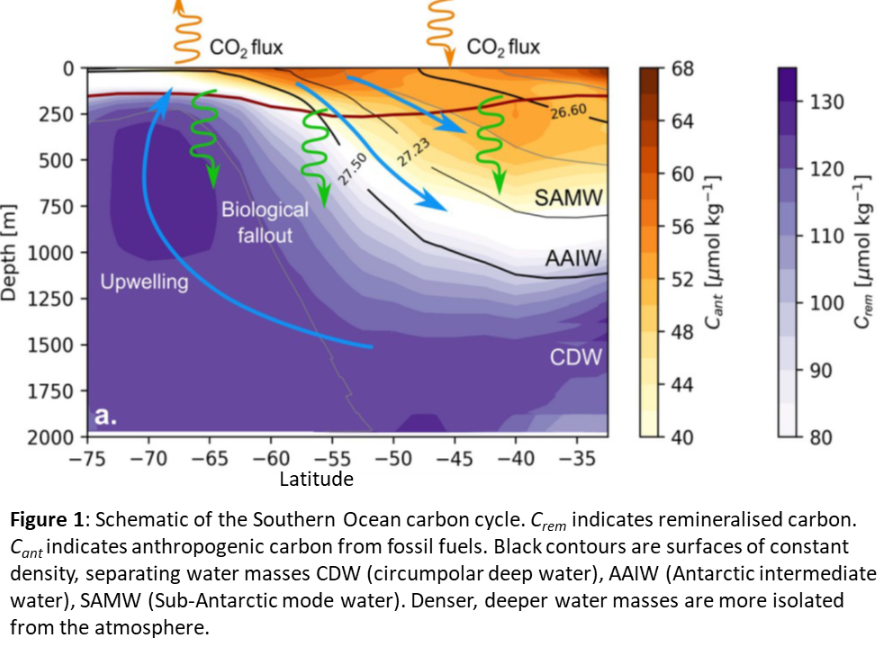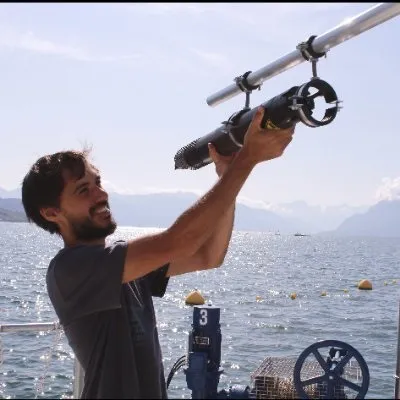About the project
The aim of this project is to determine how ocean circulation interacts with the “remineralisation” of sinking organic matter to set the efficiency of the Southern Ocean carbon sink.
Increasing atmospheric CO2 is partly mitigated by uptake of excess carbon by the ocean, but there is also a large natural ocean-atmosphere carbon cycle which is also vulnerable to change. Carbon is removed from the surface ocean – and therefore the atmosphere – in sinking organic matter, is remineralised (returned to inorganic form) in the subsurface ocean, and is returned to the surface by the circulation.
The Southern Ocean is a hub in the global carbon cycle, partly due to its large vertical exchanges, which have a complex structure (Figure 1). A critical question is: “how much remineralisation occurs in waters that are quickly returned to the surface, versus waters that remain isolated from the atmosphere for centuries?”, yet there are large uncertainties in the structure both of the circulation and of remineralisation.
This project will seek to answer this question by combining a novel dataset for observing the biological pump (Briggs et al., 2020) with recent modelling advances (Lauderdale & Cael, 2021) in understanding the link between circulation, remineralisation, and the Southern Ocean carbon sink.
For full project details visit the Inspire project page.

Supervisors
- Dr Kevin Oliver (University of Southampton)
- Dr Bieito Fernández Castro (University of Southampton)
- Dr Jonathan Lauderdale (Massachusetts Institute of Technology)
- Dr Nathan Briggs (National Oceanography Centre)
